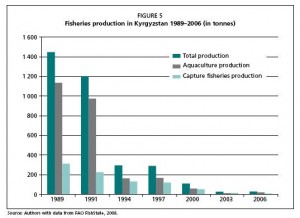So, drowning turkey chicks: is it a rural myth? Have your say.
Nibbles: Drought resistant rice, Bees, Bison, Coffee in Kenya, Cassava in Africa, Pigeon pea, Chickens in Uganda, Green ranching in the Amazon, Climate change, Dates, Museums and DNA, Organic, Ecology meet
- “Sahbhagi dhan is drought-tolerant and can survive even if there are no rains for 12 days.”
- Keeping bees in cities. Not as crazy as it sounds.
- More on the problems of the European bison. What is it with the BBC today?
- Coffee berry borer coming to Kenya. Not boring at all.
- Cassava helping Cameroonians and Ugandans.
- ICRISAT pigeon pea a hit in Kenya.
- Ugandan fishermen crying fowl. What is is with allAfrica today?
- No trees were harmed in the making of this beef.
- “How many of the changes we see happening around us are really attributable to climate change.” Pretty good question. In two parts, be sure to catch both, agrobiodiversity comes into the second.
- How to get a date.
- “By using museum specimens to look back in time, we can potentially assess … [human] impact in detail.” And genebanks, don’t forget genebanks, Olivia.
- Organic better after all. Zzzzzzzzzzzzz.
- Fisheries not as bad as was thought after all. But still pretty bad.
- For best results, use perennials in diverse landscapes and no tilling.
Nibbles: Dogs squared, Afghanistan’s poppies, Rice at IRRI, Book on sapodilla chicle in Mexico, Opuntia, Trees
- DNA survey of African village dogs reveals as much diversity as in East Asian village dogs, undermines current ideas about where domestication took place.
- Fossil doubles age of dog domestication.
- “When children felt like buying candy, they ran into their father’s fields and returned with a few grams of opium folded inside a leaf.”
- “The rice, a traditional variety called kintoman, came from my grandfather’s farm. It had an inviting aroma, tasty, puffy and sweet. Unfortunately, it is rarely planted today.”
- “An era of synthetic gums ushered in the near death of their profession, and there are only a handful of men that still make a living by passing their days in the jungle collecting chicle latex…The generational changes in this boom-and-bust lifestyle reflect a pattern that has occurred with numerous extractive economies…”
- Morocco markets prickly pear cactus products.
- TreeAid says that sustainable agriculture depends on, well, trees.
Nibbles: Pickles, Oysters, Hops, Coconut crab, Korean cuisine, Ecuador ecotourism
- Pickling facts.
- Trouble for the French oyster.
- Grow-your-own hops.
- Saving the coconut crab.
- Korea launches website of traditional recipes. Looks great, but all in Korean, alas.
- Our friend Karen Williams’ work on agrobiodiversity conservation in Ecuador highlighted.
Report on the future of inland fisheries in Central Asia is out
This is what’s happened to inland fisheries pretty much throughout Central Asia since the fall of the Soviet Union:

According to an FAO report just out, that is. There’s some limited scope for optimism, though.
Somewhat belatedly, attention is now being focused upon the reactivation of the fisheries sector with the emphasis very much on aquaculture as it is unlikely even in the Caspian Sea that capture fishery could ever again assume the same importance as in yesteryear. Led by private entrepreneurs, and with the active prompting of national fisheries departments and foreign donors, fisheries are being slowly restored to the developmental agenda. This is no easy task, given both the general failure to recognize the role the sector can play in national development and poverty alleviation strategies and the continued lack of legislative clarity, although the latter is gradually being rectified in a number of the countries.
It will be interesting to see whether any recovery is based on a reasonable foundation of fish diversity (Kazakhstan has 150 fish species), or just the usual one or two aquaculture suspects.